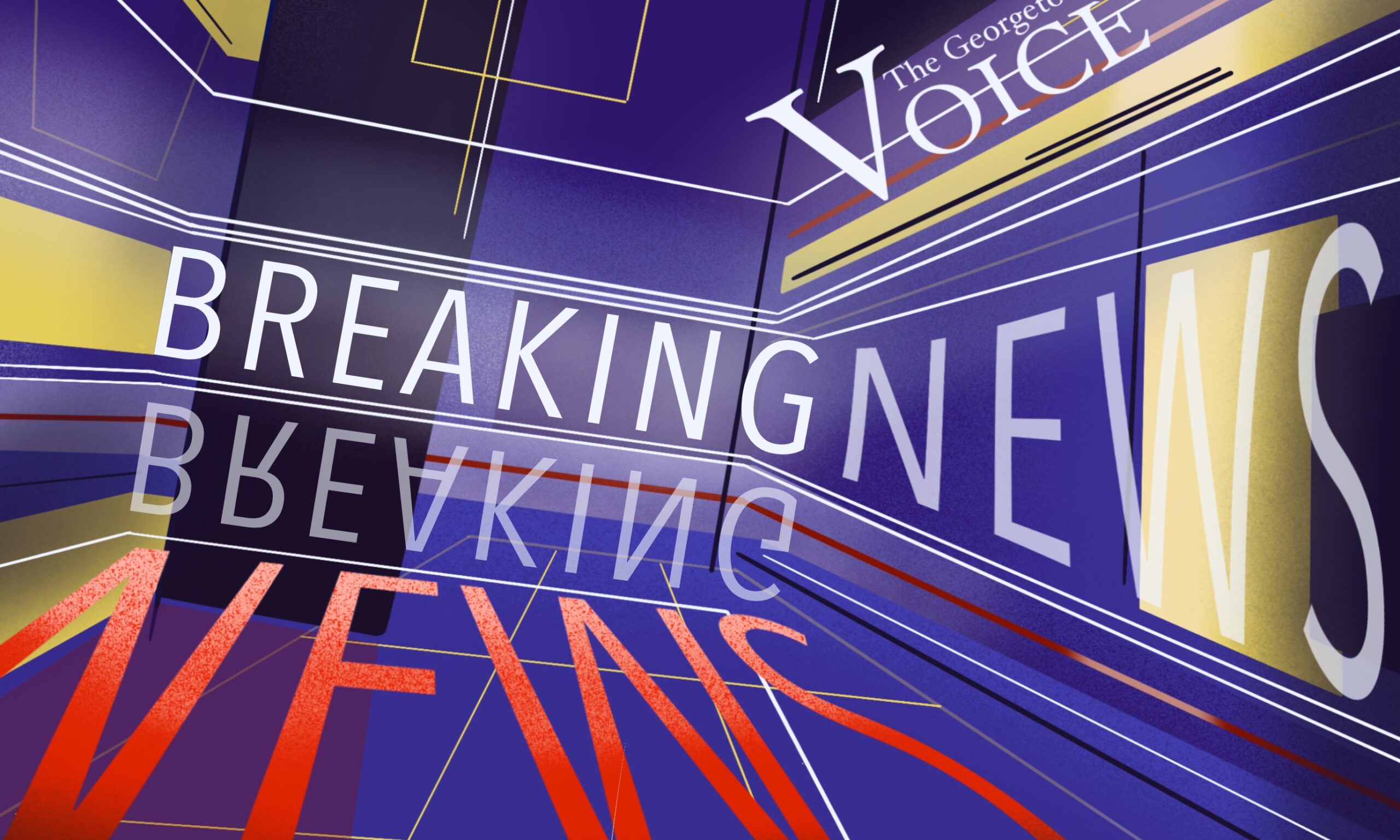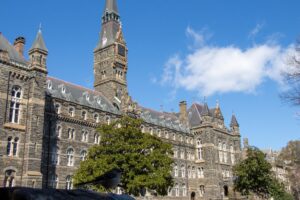The following story has been updated to include clarification from a university spokesperson and ensuing response from the GUSA BOD representatives.
Members of the Georgetown administration promised a plan to move forward on a reconciliation fund first proposed by the GU 272+ referendum passed by the student body in the spring of 2019 at a Board of Directors (BOD) working group meeting on Oct.13, according to GUSA BOD representatives.
However, an Oct. 22 statement from a university spokesperson refuted the claim that a new plan was in the offing, instead saying that the administration was merely reaffirming the commitment announced in October 2019, and not providing an updated position.
“At the BOD Student Affairs meeting, an update was requested, and an update was provided, which aligned with what was previously communicated in Oct 2019, and what is outlined on the slavery, memory, and reconciliation website.”
In a follow-up interview on Oct. 23, GUSA BOD representative Escadar Alemayehu (NHS ‘22) said she believes there might have been a fundamental misunderstanding when it comes to what the university constitutes as an update and what implementation of the referendum looks like.
“In the meeting, we heard Vice President Ferrara say that the university is planning on moving forward with the implementation of the referendum,” Alemayehu said. “There could be a lack of clarification what exactly that referendum means for administrators and what that referendum looks for students, but that is what we heard.”
“Anything that’s not silence is an update because the university is so silent on these issues,” the second GUSA BOD representative Eliza Lafferty (COL ’21) added.
The 2019 referendum, which passed the student body with 66 percent of the vote, called for a mandatory reconciliation contribution to be implemented, charging students a fee of $27.20 each semester. The fee would be used to financially benefit descendants of the 272+ enslaved people Georgetown sold in 1838 to keep the university financially viable. Following the passage of the referendum, the GU 272+ advocacy team continued to ask for implementation of the referendum.
The team has not received substantive communication and, according to members, were largely surprised by the university’s newest updates. They remain skeptical of whether this new effort will respect the referendum they advocated for.
According to Lafferty and Alemayehu, they were told by Vice President Joe Ferrara in a meeting of the BOD working group on Student Affairs that Georgetown will soon announce a plan regarding the GU 272+ referendum. This will include university working groups on key components of the referendum, including what the contribution will look like, how the project will be managed and funds will be distributed, and what other organizations the university will work with. (https://symboliamag.com)
In the meeting, BOD representatives said it was not mentioned whether the contribution would be mandatory or voluntary and whether the model would follow what was proposed by the advocacy team or the university’s first announced repose, which was a fund made of voluntary donations.
According to the subsequent statement from the university, they will not be implementing the mandatory fee, and what Ferrara shared at the meeting was not a new update, but communication on what the university had already announced.
“As an initial step, a fund – with financial resources that will meet the $400,000 commitment the University made in October 2019 (based on the amount of the proposed student fee) – has been established,” the statement read. “While mandatory fees will not be collected, we will be inviting all members of our community to contribute to the fund.”
In the Oct. 23 interview, Lafferty and Alemayehu maintained that the information was framed as an update and that Ferrara told them the university would be implementing the referendum, a phrase he repeated to GUSA President Nico Ferretti (SFS ‘21) in a second meeting.
“For the past five board meetings, we have shared very clearly what the 272 referendum was and included multiple resources that pointed it to the $27.20 fee,” Lafferty said. “And so, at the last board meeting when we were told the referendum would be implemented it was logically a direct statement from the university on the contents of that referendum.”
The university has repeatedly failed to clarify if that fund, which was supposed to begin funding projects this semester, has raised any money, and that fund was not mentioned in the meeting.
Notably, the Oct. 13 update, confirmed in a GUSA press conference on Oct. 19, does not include specific commitments from the university or include dates by which elements of the referendum will be implemented. According to the representatives, this meeting was the fifth at which they brought up the issue with the BOD, and the first time they saw any substantive updates.
According to members of the GU 272+ advocacy team, Shepard Thomas (COL ‘20) and Nile Blass (COL ‘22), the university did not reach out about their plans to move forward with some version of the referendum prior to telling Lafferty and Alemayehu about it. The team was responsible for the initial referendum, and has sent follow-up communications, including an open letter, demanding its implementation. Blass said she hasn’t gotten a response wince 2019, and Thomas hadn’t received one since February.
“I just thought the university had dropped it honestly,” Blass said at the press conference. “In the meetings that we had previously before this update from Joseph, it was very clear that whatever they were doing they were going to be functionally different and separate from the referendum. They were not going to overlap in any meaningful way at all.”
Though this update was a departure from what they have heard in previous meetings, Lafferty and Alemayehu were cautious to say it indicated any specific actions in the near future. “It is still unclear if they are even going to implement the referendum that we actually passed,” Lafferty said at the press conference.
The advocacy team is also wary of the update, especially given the fact they have not been included in the recent conversations about the reconciliation fund, Blass said.
“I think I would need another meeting from them that is more substantial in laying out an outline or at least their vision for what they are saying because there are so many versions that have been communicated to us,” she said. “I don’t trust their rhetoric of where the process is or is going.”
Thomas, who is himself a descendant, expressed concern the announcement was an attempt to respond to criticism of the university for failing to implement the referendum more than it was a tangible commitment.
“I feel that the university doesn’t know what they are doing and are responding to external and internal pressures of people at the school and people in the media pressuring them,” Thomas said. “I feel they needed to come out and say something to stop the pressure, but they honestly don’t know what they are doing.”
Blass echoed this concern. “Only when there is a risk of bad press or internal discourse or the narrative Georgetown is trying to push against is that ‘we’re racist,’ those were the three stimuli for response,” she said. “As far as meaningful, substantive, consistent engagement around this issue I don’t think that exists.”
According to Lafferty and Alemayehu, the university plans to be in contact with students about the implementation as soon as possible, though it is unclear when that will be.
Sarah Watson contributed to this report.






